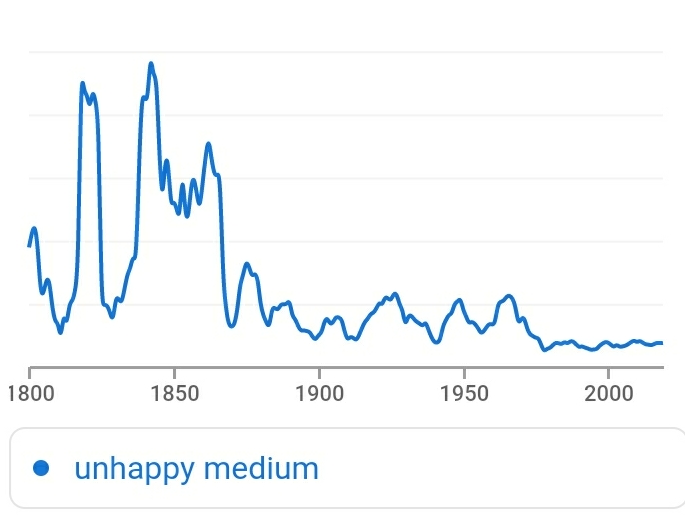This is sometimes called splitting the baby. A related term that connotes a compromise acceptable to both sides is split the difference, and some use “split the baby” as a synonym for this while others consider that an error. The original story was about an ostensible compromise so horrible that it was really a ploy to test who cared the most, but the meaning has changed over time—and not everyone accepts the newer usage.
The story from the Hebrew Bible (1 Kings 3) goes that two prostitutes both claimed to be the mother of the same baby boy, and King Solomon was called to judge the case. He ordered that the baby be chopped in two, and each woman get half. The legend says that one woman begged that he let her baby live, even if she couldn’t keep him, but the other then told Solomon she’d rather he killed the baby so neither could have him. Solomon then declared that the woman who tried to save the baby must be the real mother.
In the slang of American lawyers, though, it’s come to mean something different: if a negotiation is stalled, and the two parties cannot agree on a fair amount of money, but they both agree that it’s somewhere within a certain range and want to come to an agreement quickly, a “split-the-baby” negotiation is one where they meet in the middle (to some, exactly in the middle).
A different opinion, and one that makes it a perfect answer, is that “split the baby” should only be used like in the original story, as an alternative that’s so bad for both parties that it forces them to abandon their hard lines. To those people, if the mother of the bride wanted to invite a hundred people and the groom’s family only wanted to invite fifty, inviting seventy-five would be “splitting the difference” but they would not call it “splitting the baby.” Proposing to make both families travel to Kansas because the bride and groom can’t decide between New York and California might be “splitting the baby” even to them, but only if it’s such a bad alternative that it’s supposed to motivate them to give in a little.
Examples
Several people in the comments say that they have not heard one or more of these usages, so here are some real-world examples. Here are the top search-engine hits that weren’t about Solomon.
In economic disputes, the phrase “splitting the baby” is often used to describe a compromise somewhere in the middle of the opposing parties’ requested demands. [...] In arbitration or litigation splitting the baby is looked at as a very undesirable result. [...] On the other hand, in mediation the parties do not want a decision from a third party[;] they merely want assistance.
The term “to split the baby” is an idiomatic expression for what seems like an unreasonable decision but is actually a ploy to flush out the truth.
Legal disputes are often resolved with a “split the baby” negotiation approach, having a very different meaning than the old King Solomon story. In this context, if a dispute (typically already reduced to a money issue) is within a reasonable range of reaching a solution but both parties are still fairly well dug into their positions, one or the other might suggest that they split the difference, agreeing at a near exact middle ground, without either party making a concession on the validity of their position, merely to get the dispute resolved to avoid incurring further costs of negotiating or litigating the dispute.
An example that’s literally about determining who gets custody of small children:
This is where we get the term “splitting the baby.” It references the equitable act of giving some to each side. However, is splitting the baby the proper way we should consider custody cases? [...] While we often say we want to split the baby, do we really like such a result?
One person who says that he thinks the term should only be used in situations like you asked about, but also says that’s not how American lawyers do commonly use it:
So should you ever say “split the baby?” Sure. Here are two examples:
- The court grants your oppressive motion to compel, but makes discovery mutual, and you then negotiate a reasonable scope for discovery, or
- The court issues a final judgment that is adverse to both parties, so you settle the case.
In those situations, the court’s orders force the parties to reveal information—how much discovery was really needed and what the parties were willing to settle for—that the court couldn’t determine itself.
But if you’re just describing a compromise, do our profession a favor and use “split the difference.” It is a much better option.
Observe that all of these examples have some connotation that “splitting the baby” is bad for both sides: “a very undesirable result,” “an unreasonable decision [...] actually a ploy,” “merely to get the dispute resolved to avoid incurring further costs,” etc.

